Have you ever thought about how the food you eat affects your life and the world? Maybe you’re curious about how diet choices impact your health, the environment, and your wallet. Choosing a plant-based diet is more than a trend; it’s a step towards a better future for everyone.
Imagine waking up feeling great, knowing your dinner choices from last night helped your health and the planet. This is what a plant-based lifestyle offers.
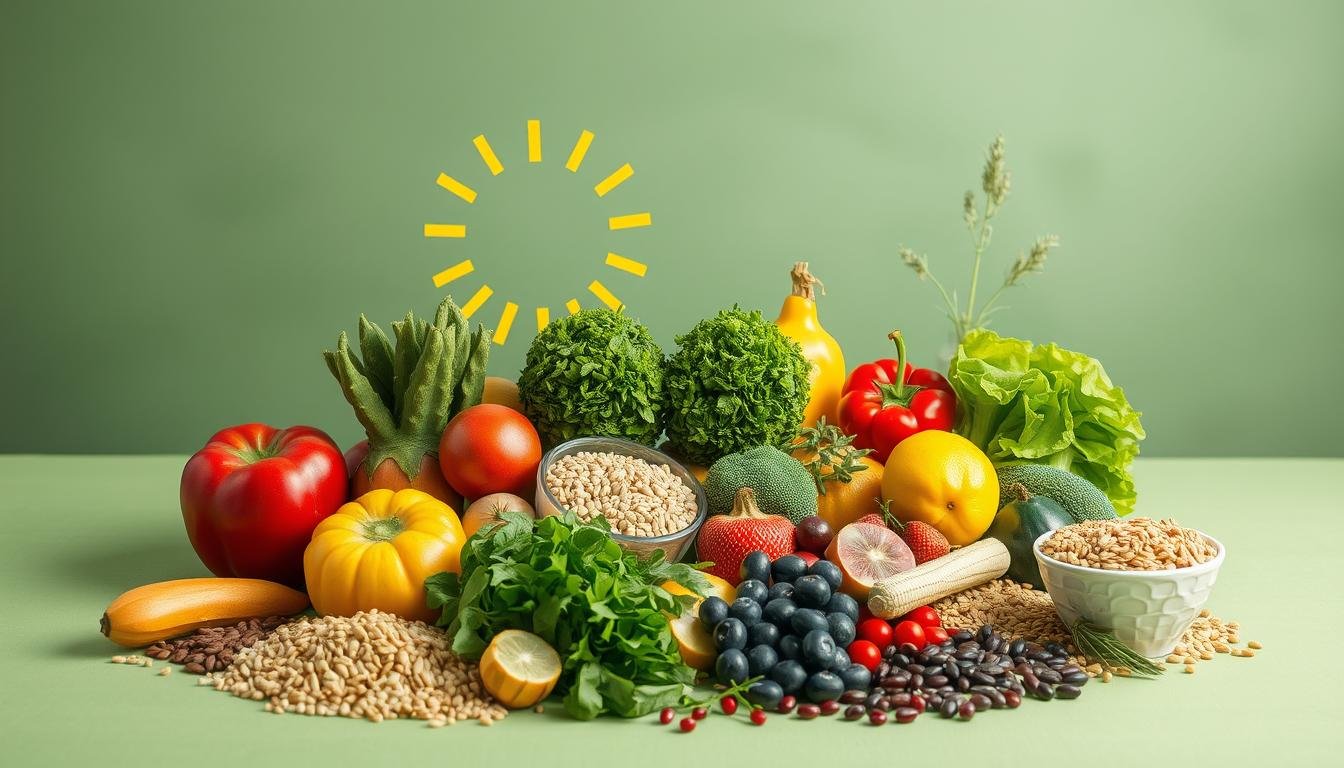
This article will help you understand the benefits of a vegan diet. You’ll learn how it can improve your health, save money, and help the environment. Plant-based nutrition facts will guide you to a healthier, more sustainable life.
Introduction to Plant-Based Diets
A plant-based lifestyle means eating mostly foods from plants. This includes fruits, veggies, nuts, seeds, oils, whole grains, legumes, and beans. People can choose to be vegan, vegetarian, or flexitarian, depending on their preferences.
What is a Plant-Based Diet?
Eating plant-based is more than just food choices. It’s about caring for your health and the planet. You eat mostly plants but can have some animal products if you want.
Vegans don’t eat any animal products. Vegetarians don’t eat meat but might have dairy. Flexitarians mostly eat plants but sometimes have meat.
Why Consider a Plant-Based Diet?
There are many good reasons to try a plant-based diet. Health is a big one. Studies show it can lower the risk of heart disease, diabetes, and some cancers.
Plant-based diets are full of fiber, vitamins, and antioxidants. They make you feel good. Also, they’re better for the planet because they use fewer resources.
More and more people in the U.S. are choosing plant-based eating. Health campaigns are helping spread the word about its benefits.
Health Benefits of a Plant-Based Diet
Switching to a plant-based diet can greatly improve your health. It’s not just tasty but also boosts your overall well-being. This is especially true for heart health and preventing chronic diseases. Let’s dive into these benefits.
Improved Heart Health
A key cardiovascular benefit of a plant-based diet is better heart health. The American Heart Association backs studies showing it lowers LDL cholesterol. This reduces heart attack and stroke risks. Plant foods are low in saturated fats and high in fiber, helping your heart.
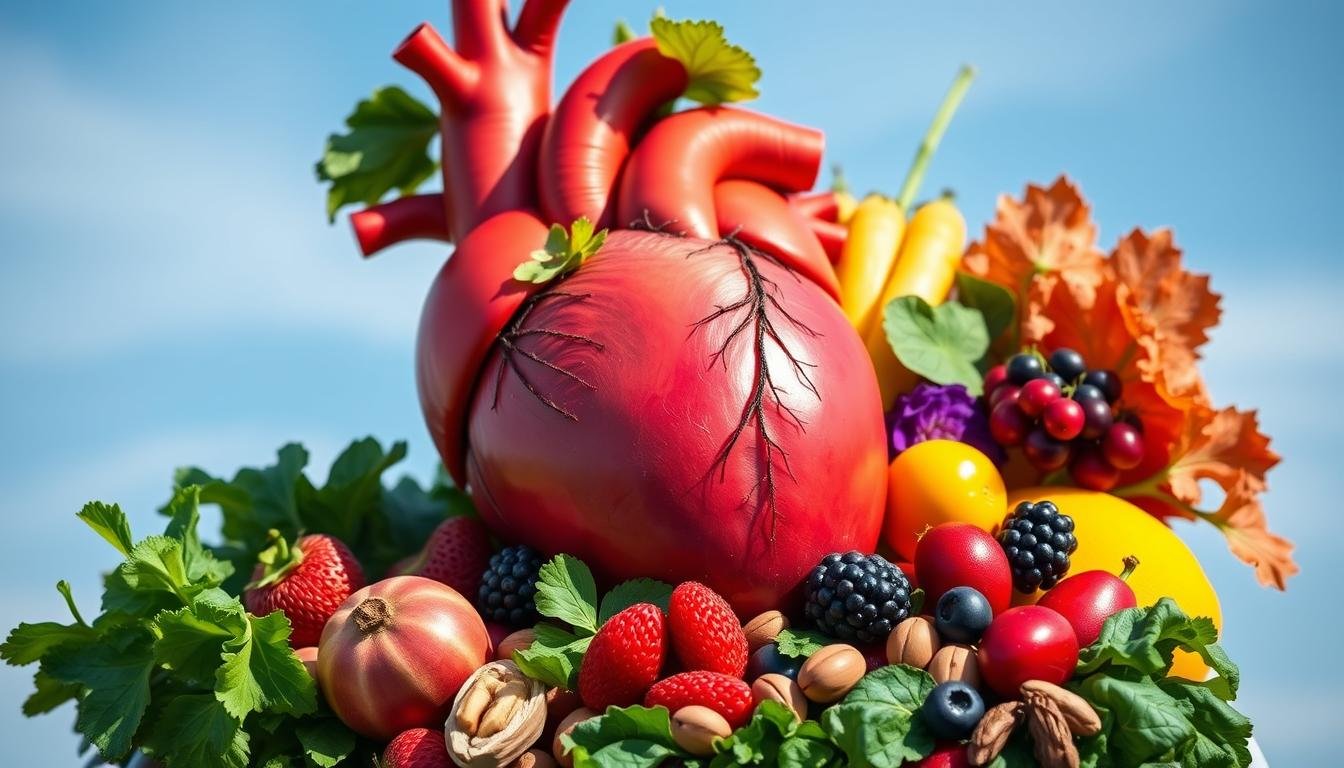
Lower Risk of Chronic Diseases
A plant-based diet also lowers chronic disease risks. Research shows it can reduce type 2 diabetes, hypertension, and some cancers. Plant foods are full of antioxidants and anti-inflammatory compounds. This helps lower disease risk.
By avoiding processed foods and animal products, you can live healthier. A plant-based diet is a powerful way to protect your health from heart and chronic diseases.
Nutritional Considerations in a Plant-Based Diet
Switching to a plant-based diet can bring many health benefits. But, it’s crucial to plan well to get all the nutrients you need. Knowing where to find these nutrients is key to a balanced vegan diet and avoiding deficiencies.
Essential Nutrients: Where to Get Them
It’s important to know the plant-based sources of essential nutrients. Here are some key nutrients and their sources:
- Protein: Beans, lentils, chickpeas, tofu, tempeh, quinoa
- Iron: Spinach, lentils, pumpkin seeds, quinoa, fortified cereals
- Calcium: Fortified plant milk, kale, broccoli, tahini, almonds
- Vitamin B12: Fortified nutritional yeast, fortified plant milk, B12 supplements
- Vitamin D: Fortified plant milk, mushrooms, sunlight, D supplements
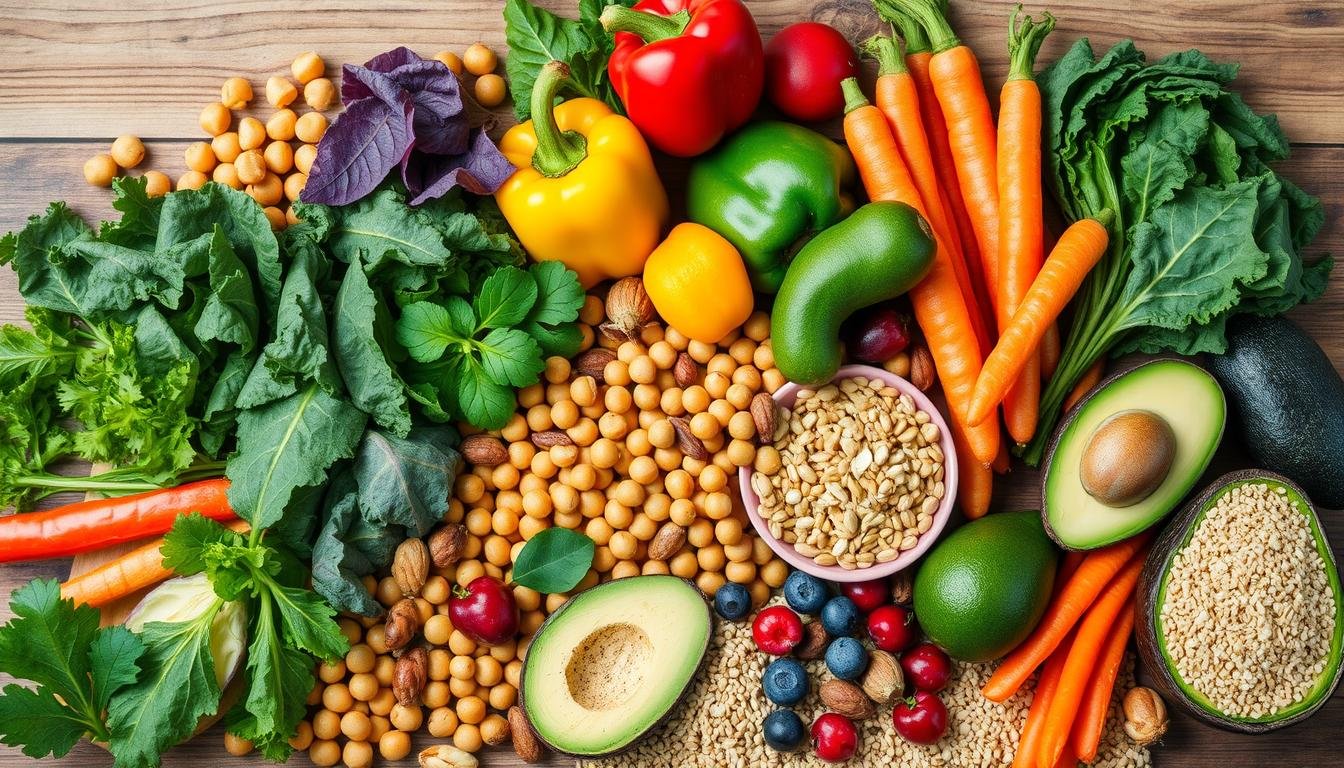
Potential Nutrient Deficiencies
Even with plant-based foods, some nutrients can be lacking if not planned well. It’s important to address these deficiencies to stay healthy. Here are some common ones and how to avoid them:
- Protein Deficiency: Eat a variety of protein-rich foods like lentils, tofu, and seitan.
- Iron Deficiency: Eat iron-rich foods with vitamin C to improve absorption. Consider iron supplements if needed.
- Calcium Deficiency: Drink fortified plant milk and eat leafy greens and other calcium-rich foods regularly.
- Vitamin B12 Deficiency: Since B12 is not in plant foods, include fortified foods or take a B12 supplement.
- Vitamin D Deficiency: Get sunlight and eat fortified foods. Supplements are also helpful, especially in winter.
Environmental Impact of Plant-Based Diets
Switching to a plant-based diet is great for our planet. It helps reduce carbon footprint and saves resources. The benefits of eating plants are backed by science.
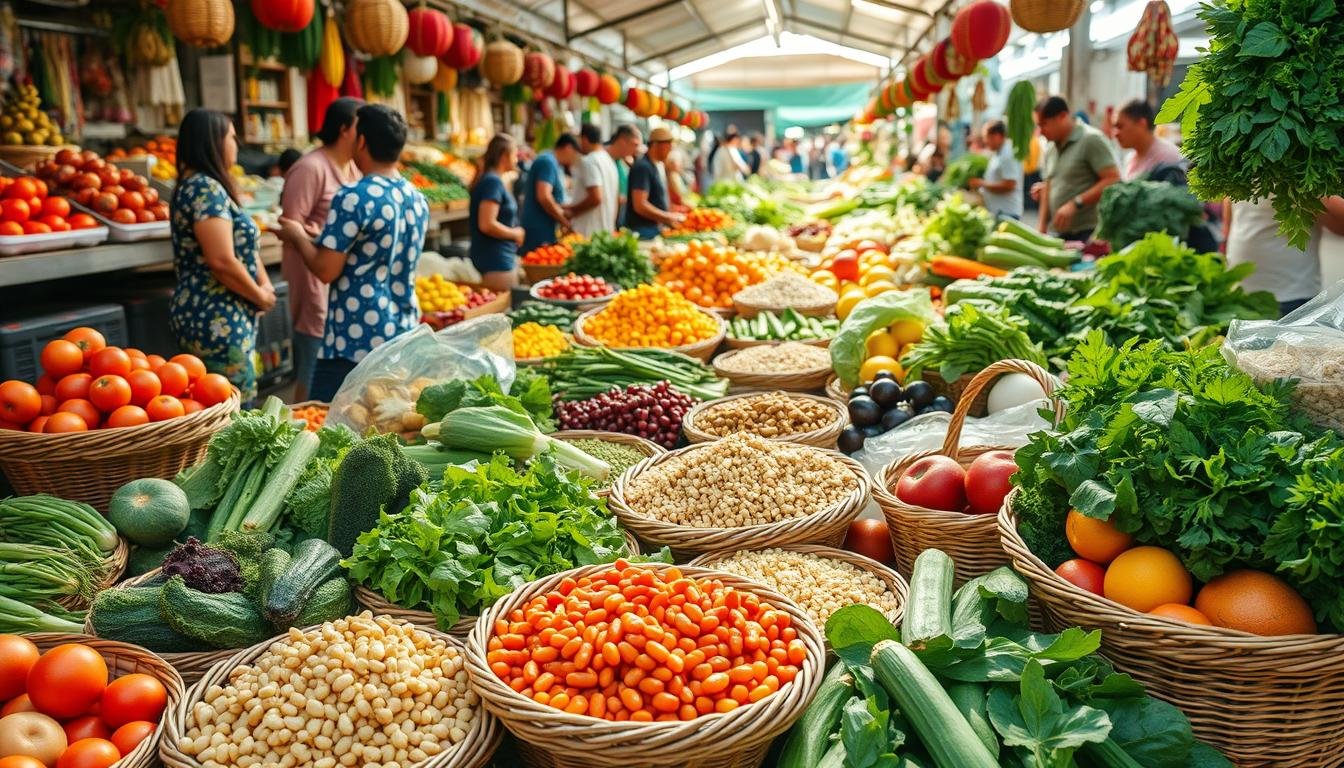
Plant-based diets are good for the environment. Animal farming is a big source of greenhouse gases. Studies show that plant foods make less emissions than meat and dairy.
Plant-based eating also saves water. Meat needs a lot of water, more than plants. For example, beef uses 1,800 gallons of water per pound. Lentils use about 700 gallons.
| Food Item | Water Usage (Gallons per Pound) | CO2 Emissions (Kg per Pound) |
|---|---|---|
| Beef | 1,800 | 27 |
| Pork | 576 | 12 |
| Lentils | 700 | 0.9 |
| Tofu | 302 | 2 |
Plant-based diets also help prevent deforestation. Forests are cut down for cattle and crops like soy. Eating plants helps keep forests intact, which is good for biodiversity and the climate.
Choosing plant-based foods is good for you and the planet. The sustainability benefits and ecological advantages of plant-based eating make a strong case for eating less animal products. It’s a step towards a greener lifestyle.
Economic Benefits of Plant-Based Eating
Choosing a plant-based diet can save you money. It’s not just about saving at the grocery store. It also helps lower your medical bills.
Cost Savings
Plant-based diets are often cheaper. This is because plant foods like whole grains and vegetables cost less than meat. Buying these foods in bulk can save even more money.

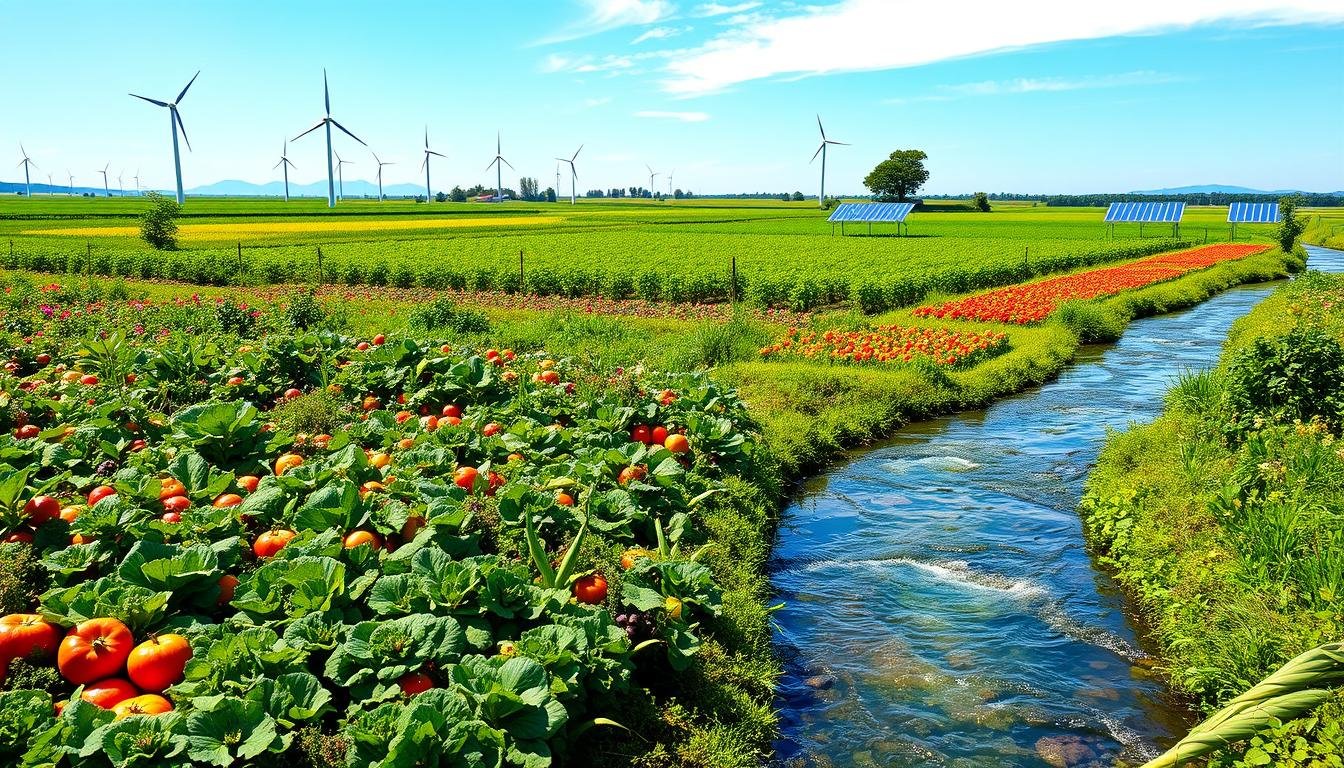
This table shows how a plant-based diet can save you money. It highlights the economic benefits of choosing what you eat.
Impact on Healthcare Costs
Plant-based eating can also cut down on medical bills. Many diseases, like heart disease and diabetes, are linked to diet. Eating plants can help prevent these diseases and save on healthcare costs.
Studies show that eating less meat can lead to fewer chronic diseases. This means less money spent on doctor visits and medicines. By choosing vegan options, you can save money on food and healthcare, leading to a healthier, more affordable life.
Plant-Based Proteins: Sources and Benefits
Many people think plant proteins are lacking in a vegan diet. But, the truth is, there are many high-quality vegan protein options. We’ll explore the different sources and benefits of plant-based proteins to help you make better food choices.
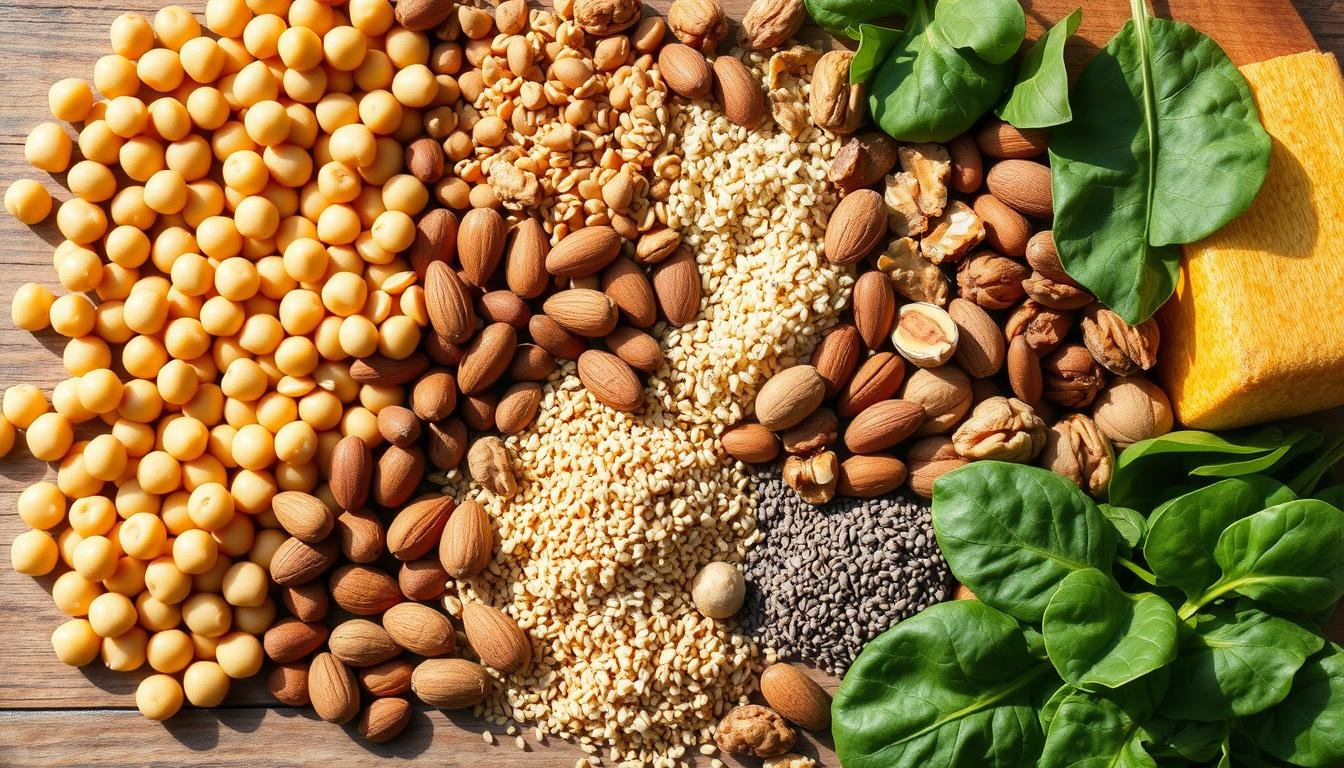
Plant proteins come from various sources, each offering unique nutritional benefits. Here are some of the most popular and nutritious options:
- Legumes: Lentils, chickpeas, and black beans are packed with protein, fiber, and important nutrients.
- Nuts and Seeds: Almonds, chia seeds, and hemp seeds are good for protein, healthy fats, and minerals.
- Whole Grains: Quinoa, brown rice, and oats provide protein and complex carbs, along with fiber.
- Vegetables: Leafy greens like spinach and kale have surprising amounts of protein, vitamins, and antioxidants.
- Soy Products: Tofu, tempeh, and edamame are great vegan protein sources with complete protein profiles.
Plant-based proteins offer more than just protein. They can boost your health by providing essential amino acids. These amino acids are key for muscle health, immune function, and body functions.
To get all nine essential amino acids, mix different plant proteins in your diet. For example, eating rice with beans or spreading peanut butter on whole-grain toast can give you a complete protein meal.
Here’s a closer look at the protein content in some popular plant-based foods:
Adding these diverse plant proteins to your diet can meet your protein needs and offer many health benefits. By choosing wisely and mixing different sources, you can enjoy a balanced and nourishing vegan diet.
Myths and Misconceptions About Plant-Based Diets
There’s a lot of wrong information out there about plant-based diets. Let’s clear up some common myths and share the real facts about eating plants.
Protein Deficiency Myth
Many think you can’t get enough protein from plants. But, you can get all the amino acids you need from different plant foods. Foods like beans, lentils, tofu, quinoa, and nuts provide the protein you need without animal products.
Even athletes and bodybuilders can keep their muscle mass on a plant-based diet. So, the idea that you can’t get enough protein on a vegan diet is just not true.
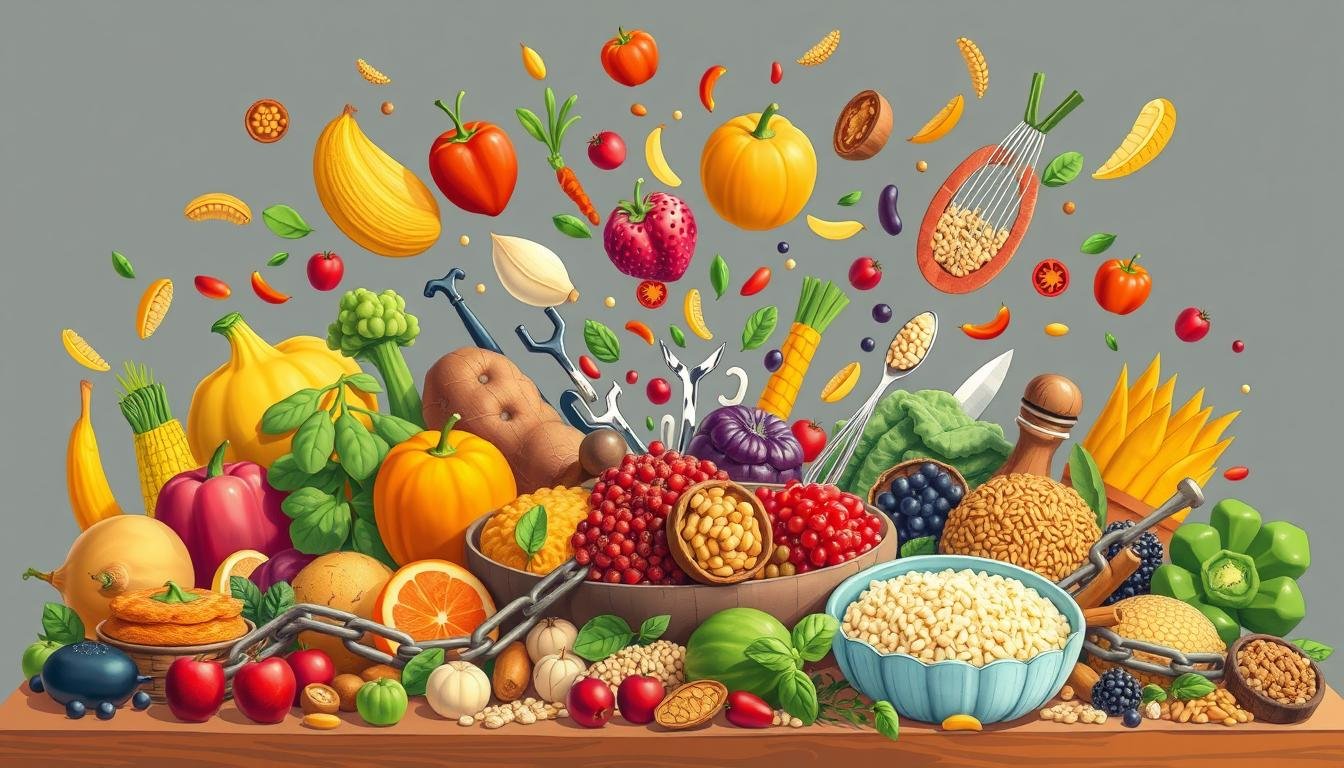
Plant-Based Diets are Expensive
Some think plant-based diets cost too much. But, the cost of vegan diets can actually be less than traditional diets. Foods like beans, rice, and vegetables are cheap and good for you. When you compare the cost of processed meats and dairy to whole plant foods, vegan diets often save money.
By cutting out expensive meat and dairy, many people save a lot. Plus, avoiding diet-related diseases can save a lot on healthcare costs in the long run.
By debunking vegan myths and understanding the real cost of vegan diets, you can make choices that are good for your health and your wallet. The truth is, plant-based eating is not only healthier but also more affordable than many think.
How to Transition to a Plant-Based Diet
Switching to a plant-based diet is a big change. Here’s a guide to help you make the switch smoothly and enjoyably.
Step-by-Step Guide to Switching
- Start Slow: Gradually replace animal products with plant alternatives.
- Explore New Foods: Try different plant-based ingredients and recipes to find your favorites.
- Focus on Nutrition: Make sure you get all the nutrients by eating a variety of fruits, vegetables, grains, and legumes.
- Stay Informed: Keep learning about the benefits of veganism and how to make your meals better.
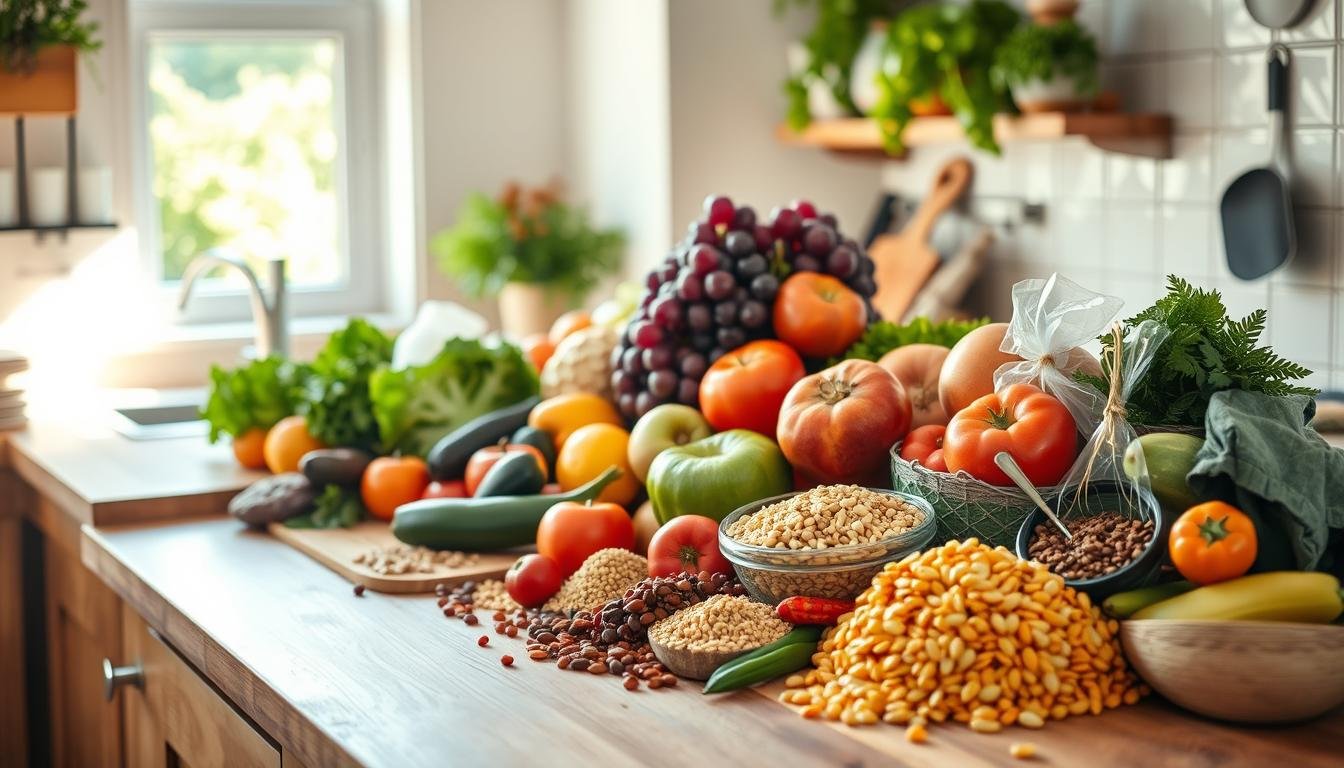
Common Pitfalls and How to Avoid Them
Switching to a plant-based diet has its challenges. Here are some tips to avoid common mistakes:
- Social Pressure: Plan ahead for social gatherings by bringing your own plant-based dishes or suggesting vegan-friendly restaurants.
- Nutritional Balance: Keep an eye on your nutrient intake, especially for Vitamin B12, Iron, and Omega-3 fatty acids.
- Dining Out: Research menus before going out and don’t be afraid to ask about plant-based options.
By planning for these challenges, you can have a smooth transition to a plant-based diet. You’ll enjoy the many benefits it offers.
Plant-Based Diet Benefits: Essential Knowledge
You’ve learned about the comprehensive guide to vegan benefits. It shows why a plant-based lifestyle is promising. It improves your health and reduces your impact on the environment. Choosing a plant-based diet is more than just eating greens. It’s a lifestyle that combines kindness with real benefits.
Health benefits are a big plus. A plant-based diet can make your heart healthier and lower the risk of chronic diseases. Knowing about essential nutrients and where to find them is key. This ensures you get all you need without missing out on nutrition.
This lifestyle offers more than just health perks. It also saves money. Eating meat and dairy can be expensive, but plant-based options are cheaper. Plus, it can lead to lower healthcare costs in the long run.
It’s also good for the planet. Eating less animal products means less harm to the environment. It uses less water and land, making it a greener choice.
In short, a plant-based diet is a smart choice for your future. It’s about taking care of yourself and the planet. This plant-based lifestyle advantage fits perfectly with today’s need for caring for our world.
With these reasons and essential vegan knowledge, you’re ready to start or deepen your plant-based journey. It offers health, environmental, and economic benefits. It’s a complete approach for a better future.
Delicious Plant-Based Meal Ideas
Switching to a plant-based diet doesn’t mean you have to give up taste or variety. There’s a whole world of vegan meals waiting to be explored. Whether it’s breakfast, lunch, or dinner, you can find both nutrition and flavor in plant-based foods.
Breakfast
Begin your day with energizing and nourishing plant-based breakfasts. A favorite is a vibrant smoothie bowl with fresh fruits, plant-based milk, and crunchy granola. Another great option is avocado toast with cherry tomatoes and sprouts for a burst of flavors.
For those in a hurry, try overnight oats with almond milk, chia seeds, and maple syrup. It’s a make-ahead wonder.
| Dish | Main Ingredients | Preparation Time |
|---|---|---|
| Green Smoothie Bowl | Spinach, banana, almond milk, granola | 10 minutes |
| Avocado Toast | Avocado, whole grain bread, cherry tomatoes, sprouts | 15 minutes |
| Overnight Oats | Oats, almond milk, chia seeds, maple syrup | 5 minutes |
Lunch
Mid-day meals can be both filling and tasty with these vegan lunch ideas. A colorful quinoa salad with black beans, corn, bell peppers, and lime dressing is a great choice. A chickpea and avocado wrap is also fantastic, with creamy and crunchy textures.
Or, try a Buddha bowl with grains, veggies, and tahini sauce for a wholesome meal.
Dinner
Finish your day with delicious plant-based dinners. A rich lentil stew with sweet potatoes, carrots, and herbs is perfect for a cozy evening. For something more elaborate, a vegetable stir-fry with tofu, broccoli, and mushrooms over jasmine rice is satisfying.
A vegetable curry with coconut milk and spices is also a great choice. It’s exotic and comforting.
| Dish | Main Ingredients | Preparation Time |
|---|---|---|
| Lentil Stew | Green lentils, sweet potatoes, carrots, herbs | 45 minutes |
| Vegetable Stir-Fry | Tofu, broccoli, mushrooms, jasmine rice | 30 minutes |
| Vegetable Curry | Mixed vegetables, coconut milk, spices | 40 minutes |
Exploring plant-based meals for breakfast, lunch, and dinner is a fun culinary journey. It nourishes your body and delights your taste buds.
Resources for Continuing Your Plant-Based Journey
Starting a plant-based diet is rewarding but can be challenging. Luckily, there are many resources to help you. Online communities, cookbooks, and blogs offer tips and inspiration.
Online Resources and Communities
Online vegan support networks are great for staying motivated. Sites like Reddit’s vegan communities and Facebook groups like “What Vegan Eat?” are perfect. They let you share experiences and get advice from others.
Specialized websites like Forks Over Knives also help. They have articles, recipes, and courses on plant-based diets.
Cookbooks and Recipe Blogs
Improve your cooking with vegan cookbooks. “Isa Does It” by Isa Chandra Moskowitz and “Thug Kitchen” have tasty recipes. They make plant-based eating fun and delicious.
Recipe blogs like “Minimalist Baker” and “Oh She Glows” also offer great ideas. They keep your plant-based kitchen full of inspiration.
Conclusion
Choosing a plant-based future brings many benefits. We’ve talked about how it can improve your heart health and lower the risk of chronic diseases. It also helps the environment.
By following a plant-based diet, you can save money and reduce healthcare costs. We also cleared up some myths, making it easier for you to start. There are many resources available, like online groups and cookbooks, to help you along the way.
Thinking about the bigger picture, adopting a plant-based diet is more than just for your health. It’s also a step towards a sustainable future. So, as you try new plant-based recipes, remember you’re helping both yourself and the planet.
